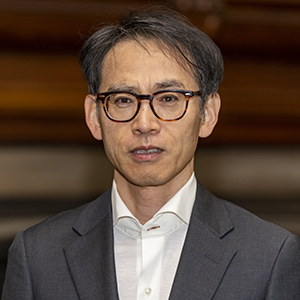
Shigehiro Oishi is the Marshall Field IV Professor of Psychology at the University of Chicago. He is a member of the American Academy of Arts and Sciences (2023). He received his B.A. at International Christian University in Tokyo, Ed. M at Teachers College, Columbia University, and Ph.D. at the University of Illinois at Urbana-Champaign in 2000. He taught at the University of Minnesota (2000-2004), Columbia University (2018-2020), and the University of Virginia (2004-2018; 2020-2022) before joining UChicago. He won the 2017 Society of Experimental Social Psychology Career Trajectory Award, the 2018 Carol and Ed Diener Award from the Society for Personality and Social Psychology, and the 2021 Outstanding Achievement Award for Advancing Cultural Psychology. His research focuses on culture, social ecology, and well-being. His lab is particularly interested in asking questions surrounding the concept of well being (e.g. "what is a good life?"), the predictors of well-being (e.g. "what are the predictors of a good life?"), and the consequences of well-being (e.g. "are there benefits to a happy/meaningful/psychologically rich life?"). Furthermore, he is interested in how the concepts, the predictors, and the consequences of well-being might differ across cultures. Additionally, his research explores socio-ecological conditions that are detrimental or conducive to well-being (e.g., income inequality, residential mobility, walkability).
Recent Research / Recent Publications
Oishi, S., & Westgate, E. C. (2022). A psychologically rich life: Beyond happiness and meaning. Psychological Review, 129(4), 790–811.
Buttrick, N., & Oishi, S. (2021). The cultural dynamics of declining residential mobility. American Psychologist, 76(6), 904-916.
Choi, H., Oishi, S., Shin, J., & Suh, E. M. (2019). Do happy events love company? Cultural variations in sharing positive events with others. Personality and Social Psychology Bulletin, 45, 528-540.
Oishi, S., Koo, M., & Buttrick, N. (2019). The social ecology of upward social mobility. American Psychologist, 74, 751-763.
Diener, E., Oishi, S., & Tay, L. (2018). Advances in subjective well-being research. Nature Human Behaviour. 2. 253-260.
Diener, E., Oishi, S., & Lucas, R. E. (2015). National accounts of subjective well-being. American Psychologist, 70, 234-242.
Oishi, S. (2014). Socio-ecological psychology. Annual Review of Psychology, 65, 581-609.
Talhelm, T., Zhang, X., Oishi, S., Shimin, C., Duan, D., Lan, X., & Kitayama, S. (2014). Large-scale psychological differences within China explained by rice vs. wheat agriculture. Science, 344, 603-608.
Oishi, S., Graham, J., Kesebir, S., & Galinha, I. (2013). Concepts of happiness across time and cultures. Personality and Social Psychology Bulletin, 39, 559-577.
Oishi, S., & Kesebir, S. (2012). Optimal social network strategy is a function of socio-economic conditions. Psychological Science, 23, 1542-1548.
Oishi, S., Miao, F. F., Koo, M., Kisling, J., & Ratliff, K. A. (2012). Residential mobility breeds familiarity seeking. Journal of Personality and Social Psychology, 102, 149-162.
Lun, J., Oishi, S., & Tenney, E. (2012). Residential mobility moderates preferences for Egalitarian versus Loyal helpers. Journal of Experimental Social Psychology. 48, 291-297.
Oishi, S., Kesebir, S., & Diener, E. (2011). Income inequality and happiness. Psychological Science, 22, 1095-1100.
Oishi, S., & Schimmack, U. (2010). Residential mobility, well-being, and mortality. Journal of Personality and Social Psychology, 98, 980-994.
 THE UNIVERSITY OF CHICAGO
THE UNIVERSITY OF CHICAGO

